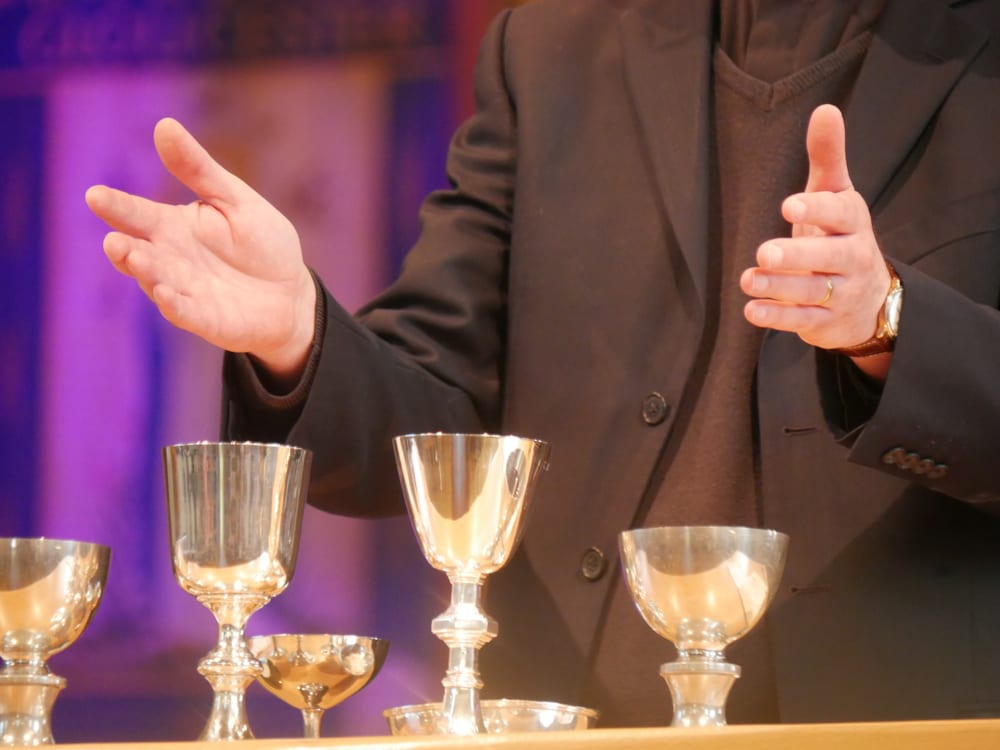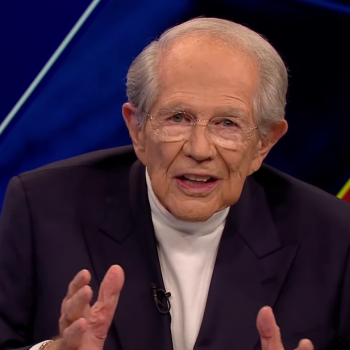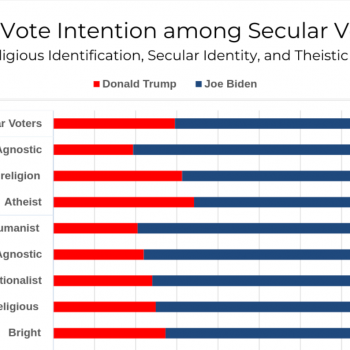Historically, the Anglican Church has had a lot in common with its big brother, Catholicism. A vaguely similar structure. A love of ritual. Oh, and a tendency to conceal priests’ pedophilia in a misguided effort to evade scandal, allowing committed abusers to rack up scores of misconduct allegations as they move from parish to uninformed, unprotected parish.

That’s not exactly news: In 2017, Australia’s Royal Commission investigated their nation’s branch of Anglicanism and found rampant sexual abuse across 95% of Australian dioceses.
Now the UK’s national Independent Inquiry into Childhood Sexual Abuse (IICSA) has just released a report finding that, similarly, the Church of England has made a practice of exposing children to danger rather than risking bad publicity surrounding pedophile priests.
As in the Catholic Church, known abusers were shuffled into different positions with little more than an apology, while victims were frequently disbelieved or pressured to show Christian forgiveness towards those who had wronged them.
The inquiry panel that authored the report, covering cases dating back as far as the 1940s, describe the problem as cultural and systemic in nature:
The culture of the Church of England facilitated it becoming a place where abusers could hide. Deference to the authority of the Church and to individual priests, taboos surrounding discussion of sexuality and an environment where alleged perpetrators were treated more supportively than victims presented barriers to disclosure that many victims could not overcome. Another aspect of the Church’s culture was clericalism, which meant that the moral authority of clergy was widely perceived as beyond reproach.
Other contributing factors included the perception that priests are credible, while children reporting abuse are not; public support for vicars exposed in the media; the privileging of loyalty over justice; and the seal of the confessional.
As in other religious environments where sexual abuse runs rampant, a general sense of shame and secrecy around all things sexual made frank, honest, transparent discussions about matters of sexuality difficult, and contributed to a mashing-together of sexual sins where the gap between consensual and non-consensual activities disappeared beneath a sense that anything sexual was inherently dirty. According to the IICSA document:
There was a culture of fear and secrecy within the Church about sexuality. Some members of the Church also wrongly conflated homosexuality with the sexual abuse of children and vulnerable adults. There was a lack of transparency, open dialogue, and candour about sexual matters, together with an awkwardness about investigating such matters. This made it difficult to challenge sexual behaviour.
Where every instance of sexual activity outside of heterosexual procreative intercourse is treated with equal disgust, abuse runs rampant and victims fear condemnation for the crimes perpetrated against them.
An unnamed Church of England spokesperson told the media that the Church was committed to change, with more transparency and greater independent oversight high on its agenda, as well as a victim-centered restitution process for those harmed by sexual abuse.
The report agrees that independent oversight is crucial; having demonstrated their inability to self-govern, Anglican bishops have forfeited the right and responsibility to safeguard children from abuse. Instead, they recommend the creation of locally-employed “diocesan safeguarding officers” whose positions are not dependent on bishops’ approval or support. The panel also recommends stricter discipline for offending priests, an end to confidentiality agreements, improved record-keeping, and improved information-sharing between the Anglican churches of England and Wales.
Significantly, they’re also calling for a victim support policy to help survivors of clergy abuse access (and pay for) support and counseling over time. That’s a major point that isn’t talked about enough in discussions like this one, or the one taking place in the Catholic Church. Improving procedures going forward is important, but making amends to those who’ve already been harmed matters too. The trauma of childhood abuse can be destabilizing for the rest of the victim’s life, and there’s a disturbing tendency to dismiss those survivors as “already broken” to deserve resources for healing.
To give credit where it’s due, the Church of England has already piloted a compensation fund to help survivors defray the costs of recovery. The fund is expected to pay out as many as £200 million (about $258 million USD), and comes with assurances that independent inquiries will be welcomed in the future.
The Archbishops of York (Stephen Cottrell) and Canterbury (Justin Welby) have released a joint open letter expressing their intent to do better:
We cannot and will not make excuses and can again offer our sincere and heartfelt apologies to those who have been abused, and to their families, friends, and colleagues.
We, as the Church of England, are ready to support anyone who comes forward. We must honour our commitment to change. Survivors have told us that words without actions are meaningless; we are taking action but we are also aware that what we have done has neither been soon enough nor sufficient.
The Daily Mail described it as “a grovelling apology,” and fair enough: They should grovel. Then they should cut it out and get busy doing the right thing by all the victims, past and present, to make sure there are no more victims in the future.
They’ve already begun. Let’s hold them to it.
(Image via Shutterstock. Thanks to Brian for the link)




It’s Moving Day for the Friendly ..."
It’s Moving Day for the Friendly ..."
It’s Moving Day for the Friendly ..."
It’s Moving Day for the Friendly ..."